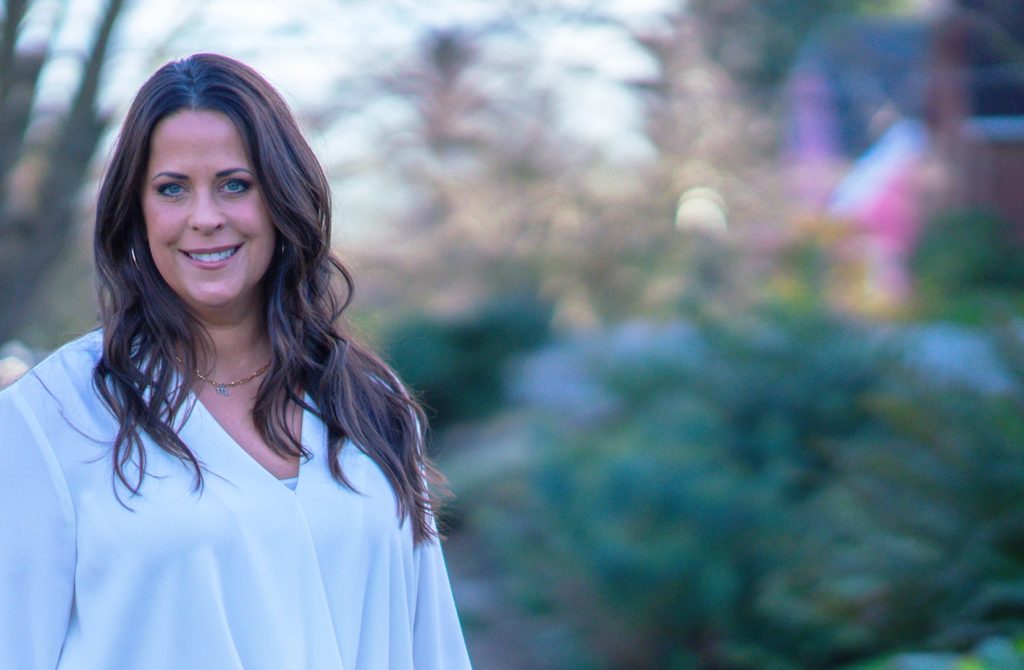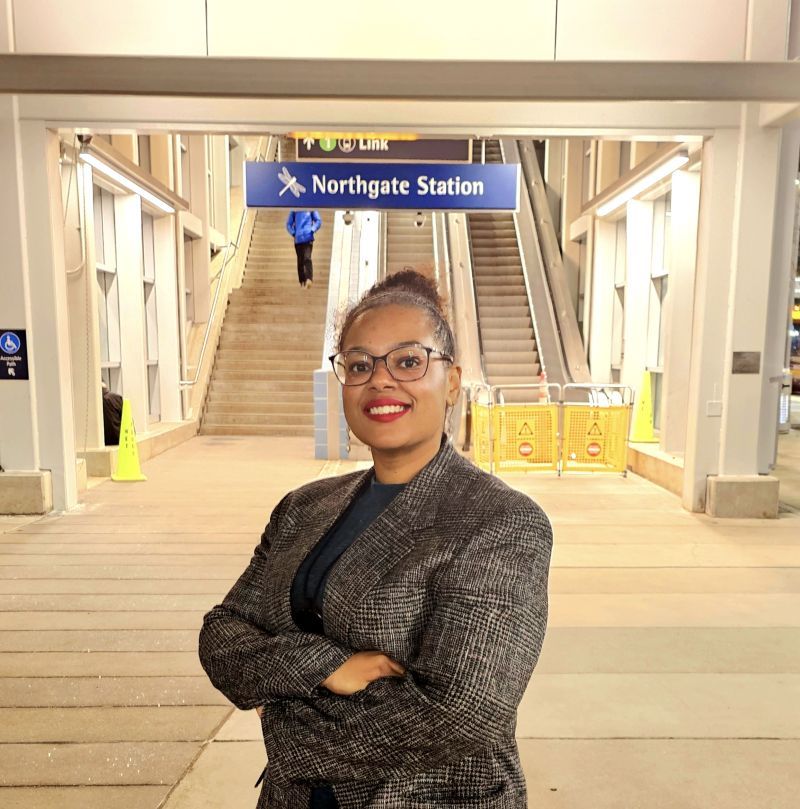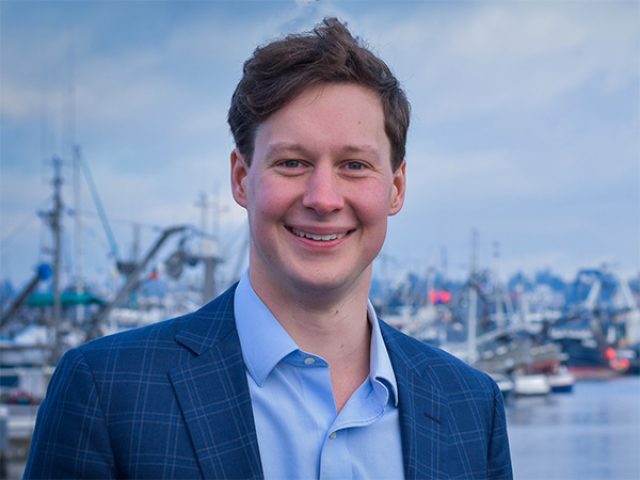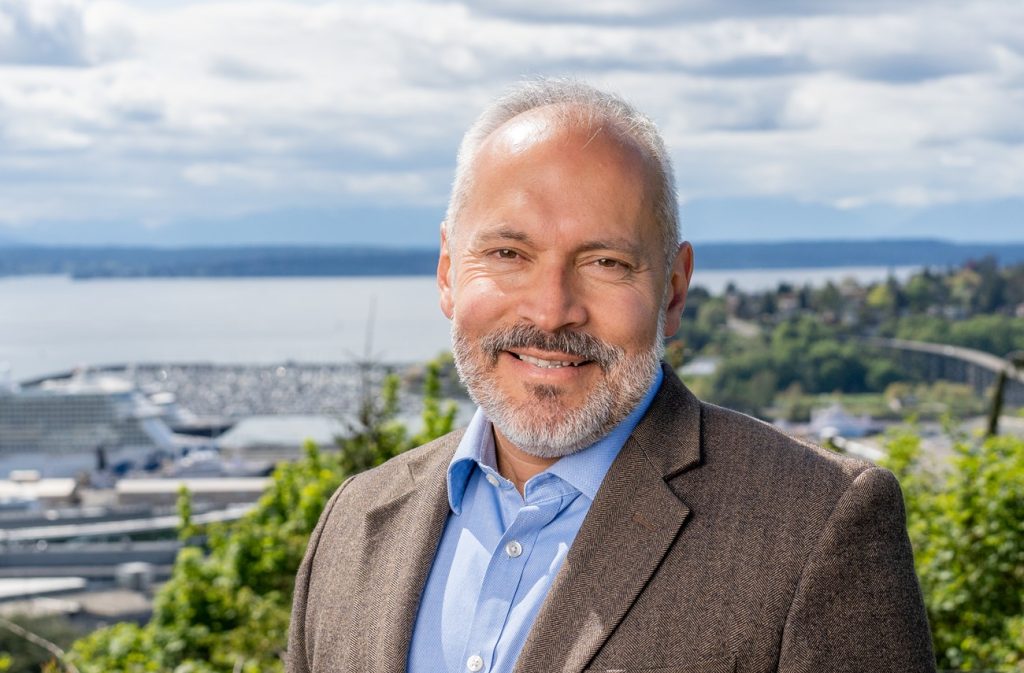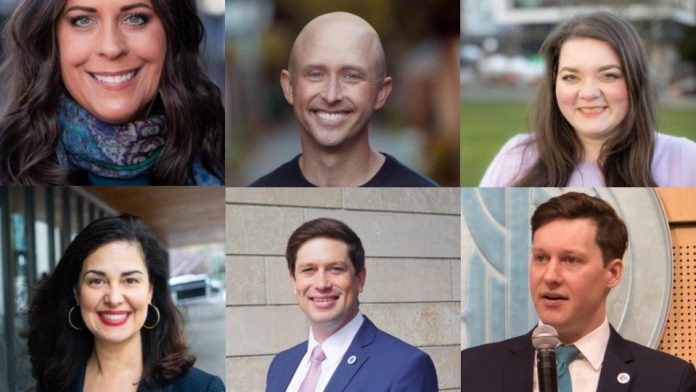
Results are coming in from the August 1 primary, and urbanists had a very good showing. In Seattle City Council races, 6 of 7 candidates endorsed by The Urbanist are now through to the general election and most are in a strong position to win. Maren Costa, Tammy Morales, Alex Hudson, Ron Davis, Dan Strauss, and Andrew Lewis are all through to the general election and all are poised to be the leading vote-getters once final primary results are tallied. The King County Council is also moving in a progressive urbanist direction.
Turnout was relatively weak
Since Washington State votes by mail, results do take several days to filter in. Usually about half the ultimate vote is counted on election night. After Monday’s count usually there isn’t much movement even as the last straggler votes are tallied — unless a race is razor close. By Friday’s drop, King County’s turnout had reached 30%. Seattle’s turnout was sitting at 36% Thursday and inched up by a point or two Friday.
One takeaway from last night's August primary election results is that voter participation dropped significantly in 2023. Primary turnout in Seattle is sitting at just under 36% as of 4pm today, the lowest it has been since 2015. @RealChangeNews pic.twitter.com/NN8vn0GV73
— Guy Oron (@GuyOron) August 2, 2023
In 2019, Seattle’s primary turnout ultimately reached 43% so late returns would have to be strong to match the turnout rate four years ago. Monday’s afternoon drop of ballot counts should be substantial and typically gives progressive candidates a boost, with candidates like Hudson and Davis already making big jumps from primary night numbers by Thursday. As one might expect by now, urbanists and progressives performed best and ran up their totals in denser, apartment-heavy districts, as shown below in election night results visualizations by Jason Weill.
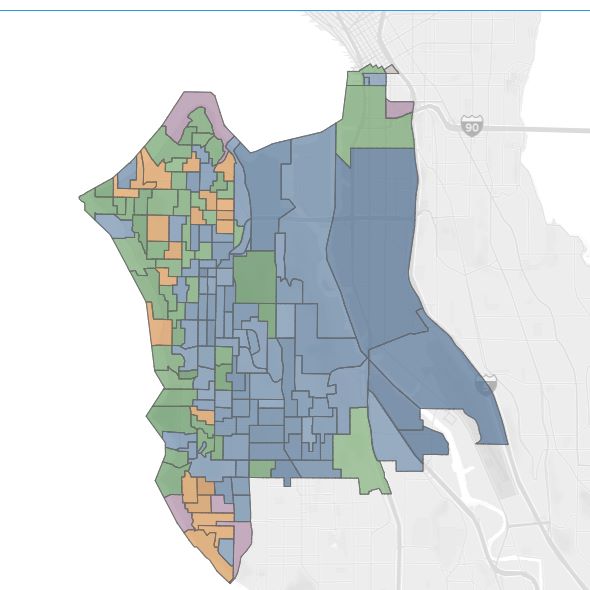
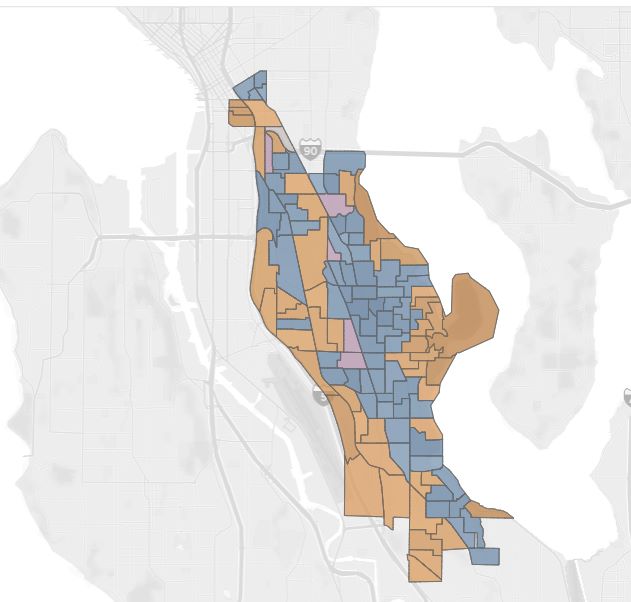
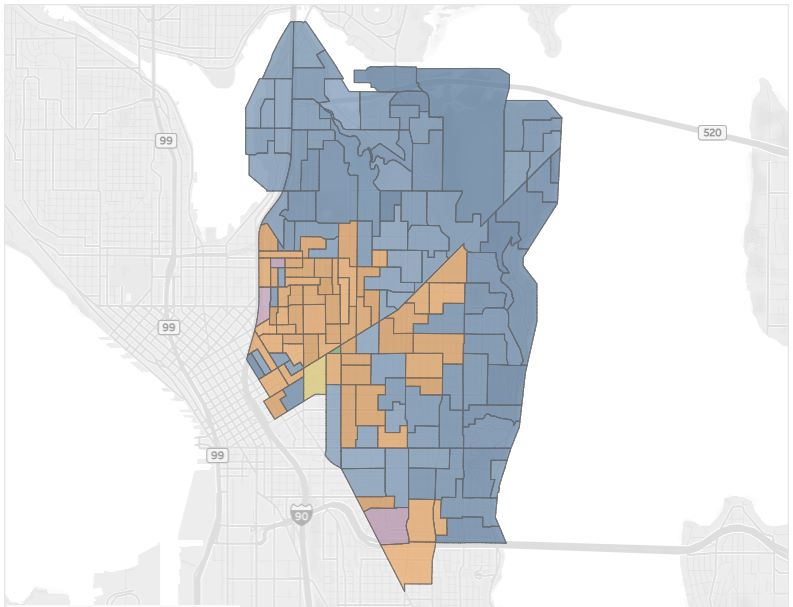
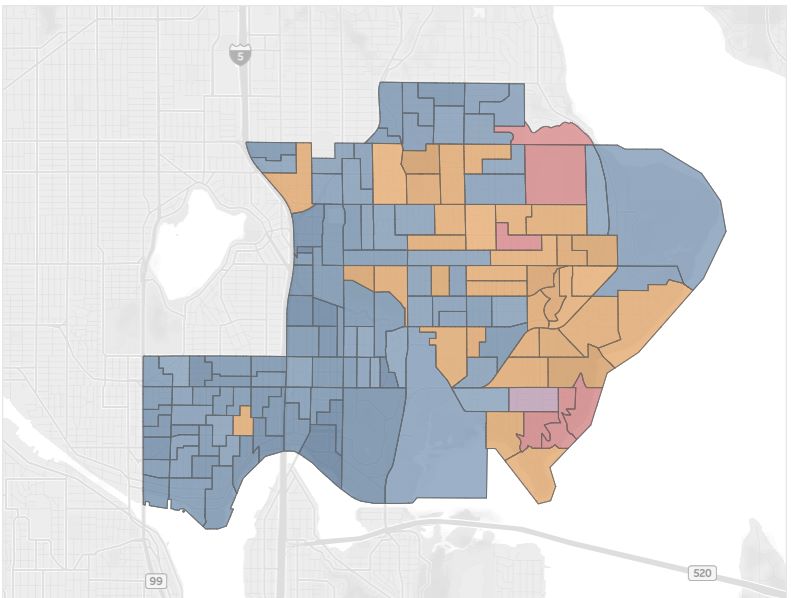
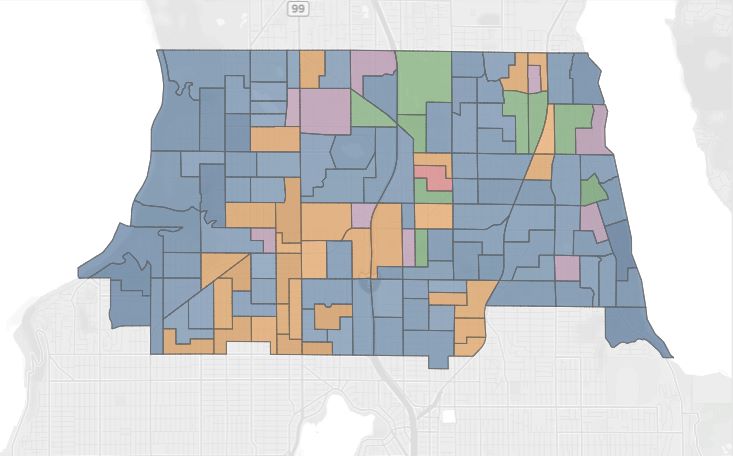
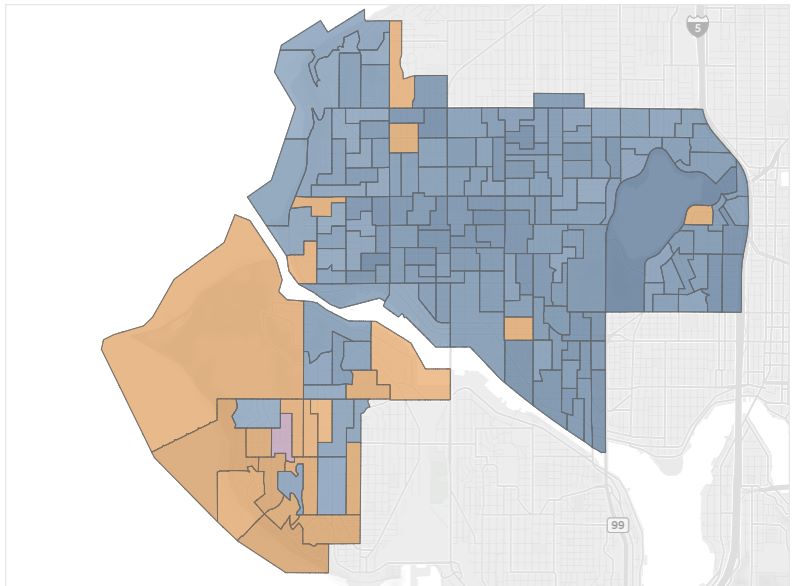
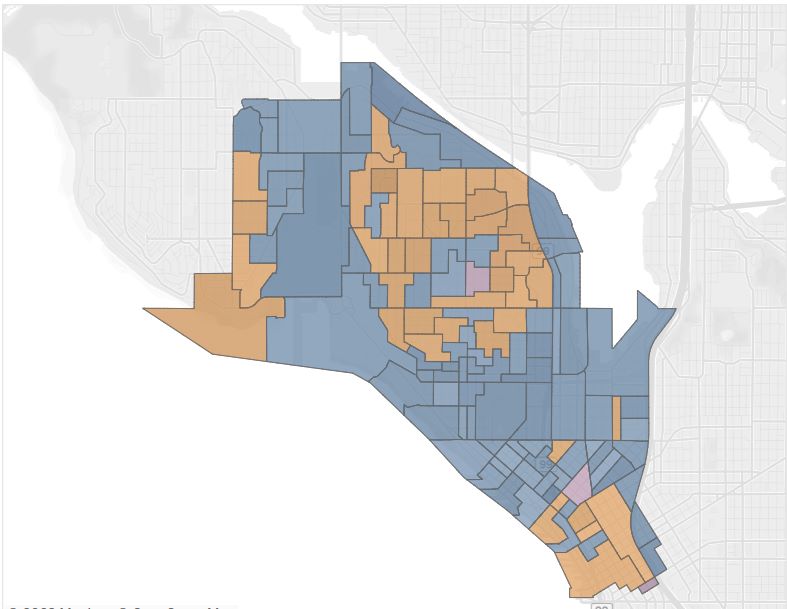
Low turnout could come as a bit of a surprise given the wealth of candidates and spending in races. However, low turnout could be a function of odd year elections, which leads us to the case for switching local elections to even years when turnout is much higher with federal races on the ballot. The King County Council has already voted to switch to even years for their races in the next election cycle.
In what could be a harder problem to fix, low turnout could be an indication of a disaffected electorate that is losing faith in elected leaders (whether conservative, centrist, or progressive) to solve problems and deliver on their big campaign promises. Delivering real progress for voters would be a great salve to break out of that spiral.
Maren Costa has a sizable lead in D1
Maren Costa, a climate organizer and former Amazon tech worker, has a wide lead in D1 with 33% of the vote. Rob Saka is in second with 24% of the vote. Business owner and former administrative law judge Phil Tavel challenged Saka in the centrist lane, but came up short with a 20% share, as of Friday.
Most of Tavel’s supporters are likely to migrate toward Saka, but Costa may be able to consolidate elsewhere. Even with her nine-point lead (which could grow) this could be a tight race in the fall, but Costa is in a much stronger position than most predicted. She appears likely to unite labor, urbanists, and environmental voters. If progressives were hoping to win in D1 — not the most fertile ground for them — this is a pretty good script for them.
Meanwhile, Saka grabbing only 24% while outspending Costa — including $40,000 in outside money — was not a strong showing. In fact, political consultant Crystal Fincher, who hosts the Hacks and Wonks podcast and also serves on The Urbanist’s board, called it “lackluster.”
Read our interview with Costa.
Tammy Morales cruising in D2
Morales had 48% on election night, but she has widened that lead to a more comfortable 52.3% to 42.6% over challenger, Tanya Woo, a Rainier Beach resident with ties to the Chinatown-International District. Despite rumblings of anti-incumbent mood and a tough challenge here, Morales’ final tally should be well over the 50% line. An outspoken advocate for social housing and traffic safety, Morales is stridently progressive and her district seems pretty happy with that.
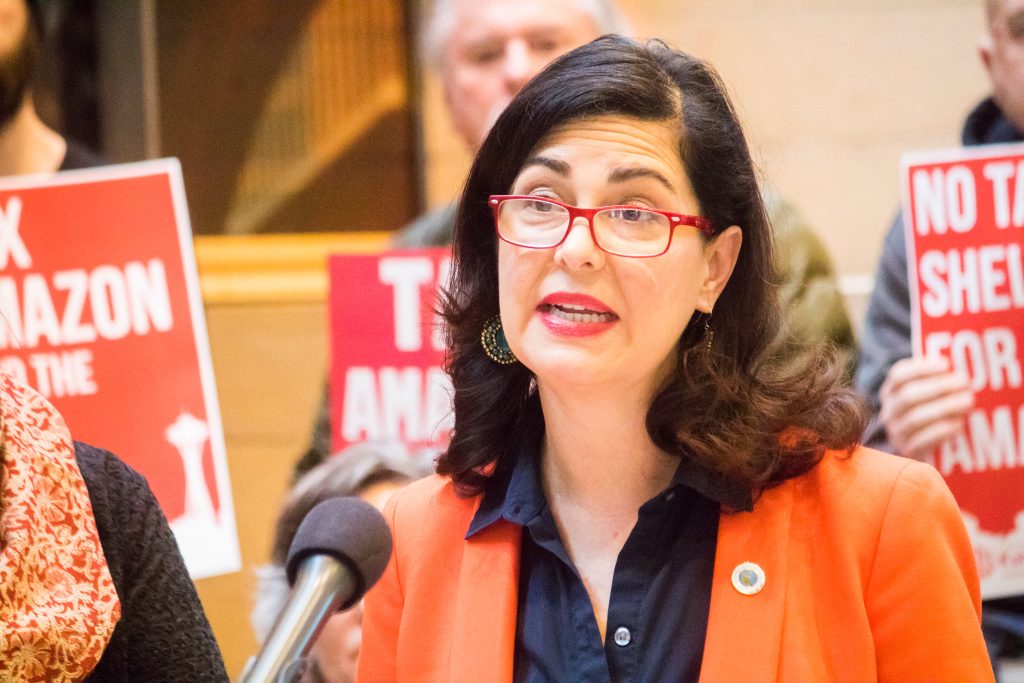
Watch our monthly speaker series chat with Morales.
Alex Hudson likely to pull ahead in D3
After trailing Joy Hollingsworth by 7.7 points on election night, Hudson is down just 0.4 points by Friday, which suggests she is trending toward surpassing Hollingsworth, who sits at 37%. Bobby Goodwin, a public defender with a pointy mustache, was a bit of a surprise, grabbing 10% of the vote. Given his more conservative stances, Goodwin’s supporters might be more likely to shift to Hollingsworth.
Hudson thanked her supporters and said she feels like her campaign is in strong position for the general election. pic.twitter.com/cZcAcMOhSs
— The Urbanist (@UrbanistOrg) August 2, 2023
However, considering her platform and record as former executive director of Transportation Choices Coalition, Hudson seems likely to consolidate progressives, urbanists, and multimodal advocates. It’s trending to be a close race in the fall, but Hudson has to be happy with the primary result.
In today's release of the latest primary election results from @kcelections, urbanist Alex Hudson has catapulted up to within 200 votes of first-place D3 finisher Joy Hollingsworth. She looks on track to finish at the top of the pack when all votes are counted. pic.twitter.com/P2ZW1Vitpc
— The Urbanist (@UrbanistOrg) August 3, 2023
Read our announcement interview with Hudson.
Ron Davis has a big lead in D4
Davis has a 44.9% share after Friday’s drop, and that may continue to grow. It will be bureaucrat Maritza Rivera (her current post is as the Seattle Office of Arts and Culture Deputy Director) who faces him, as she edged engineer and bridge enthusiast, Kenneth Wilson, 32% to 21%. It will be classic Stranger progressive vs Seattle Times business centrist race, as both endorsements rang true.
HUMBLED by my community's vote of confidence tonight!
— Ron Davis for Seattle (@seattle4ron) August 2, 2023
Thank you District 4! Looking forward to seeing the final results! pic.twitter.com/D7SANuY8Ei
Wilson was running in a homeowner backlash lane opposing housing density across much of his district and his weak showing shows how increasingly non-viable that message is as the housing affordability crisis worsens. It’s not clear Rivera’s housing platform is much better, but it will be incumbent on her to offer solutions, since Davis has put forth a robust housing vision.
Watch our lunch and learn with Davis or read our announcement interview for more about his plans.
ChrisTiana ObeySumner advances to face Cathy Moore in D5
The Stranger endorsement also proved decisive in determining the progressive lane in D5, giving them a clean sweep in Seattle City Council races. Equity consultant and disability rights activist, ChrisTiana ObeySumner, has 24.4% of the vote as of Friday’s drop, which is trending up and gives them an unassailable lead over Urbanist-endorsed Nilu Junks, who has slipped below 19%.
Meanwhile, former King County Superior Court Judge Cathy Moore is sitting at 30.7% on the strength of the Seattle Times endorsement. Broadview Community Council leader Justin Simmons took fourth with 11% of the vote. Moore starts with the edge, but ObeySumner could gain as they increase their name identification and get their message out there.
The Urbanist Elections Committee was not able to sit down with ObeySumner for an interview before the primary vote but did find much to like in their questionnaire responses, which included support for pedestrianization, speeding up transit, social housing, and implementing Alternative 6 to the Seattle Comprehensive Plan to boost housing creation.
Read our interview with Cathy Moore. (We’re aiming to publish an interview with ObeySumner in coming weeks.)
Strauss over 50% in D6
Rumors of Dan Strauss’s demise were premature. As of Friday, he has 51.8% share in D6 and challenger Pete Hanning, who is executive director of the Fremont Chamber of Commerce, will have an uphill climb to catch him starting from his current 29% share in the primary. Hanning has run to Strauss’s right and championed a punitive carceral strategy to deal with public safety, an approach that has proven ineffective. While the district has shifted to the right in redistricting, so has Strauss, and it seems the new district is still pretty content with him.
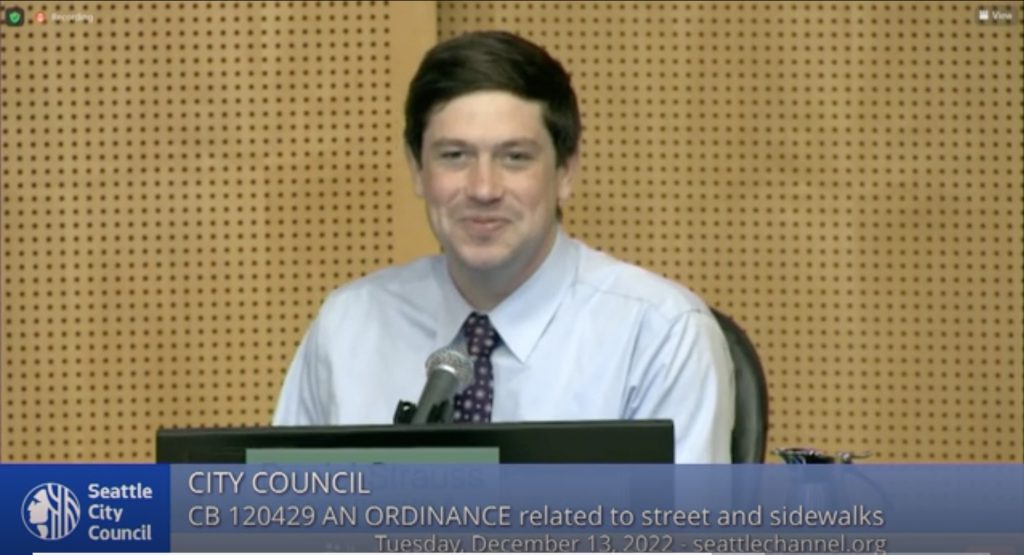
Lewis and Bob Kettle square off in D7
Incumbent Andrew Lewis has 43.5% of the vote in D7. He will face Queen Anne Community Councilmber Bob Kettle, who has 31.5% of the primary vote as of Friday. Any incumbent that far under 50% tends to be a bit worried, but Kettle is hardly a juggernaut himself. This could mean a close race and a ton of outside spending.
Progressives would be wise to rally around Lewis to ensure this seat stays out of conservative hands and progressive legislation can continue to have a path forward. Some see Lewis as wishy washy, but The Urbanist Elections Committee noted “Lewis’s urbanist vision and willingness to take tough votes will be crucial to our ability to upzone the city, pedestrianize plazas, support social housing, build bike infrastructure, and generally deliver on our goals.”
Watch our monthly speaker series interview with Lewis from April.
Latino representation coming to King County Council
The representation on the King County Council is poised to get much more diverse after Teresa Mosqueda and Jorge Barón both had very strong primaries with each above 50% — Barón is at 50.7% and Mosqueda is at 57.6% as of Friday’s drop. The county council has never had Latino representation before and only three people of color have been elected to the body in its history. That appears set to change following the primary result in District 4 and District 8.
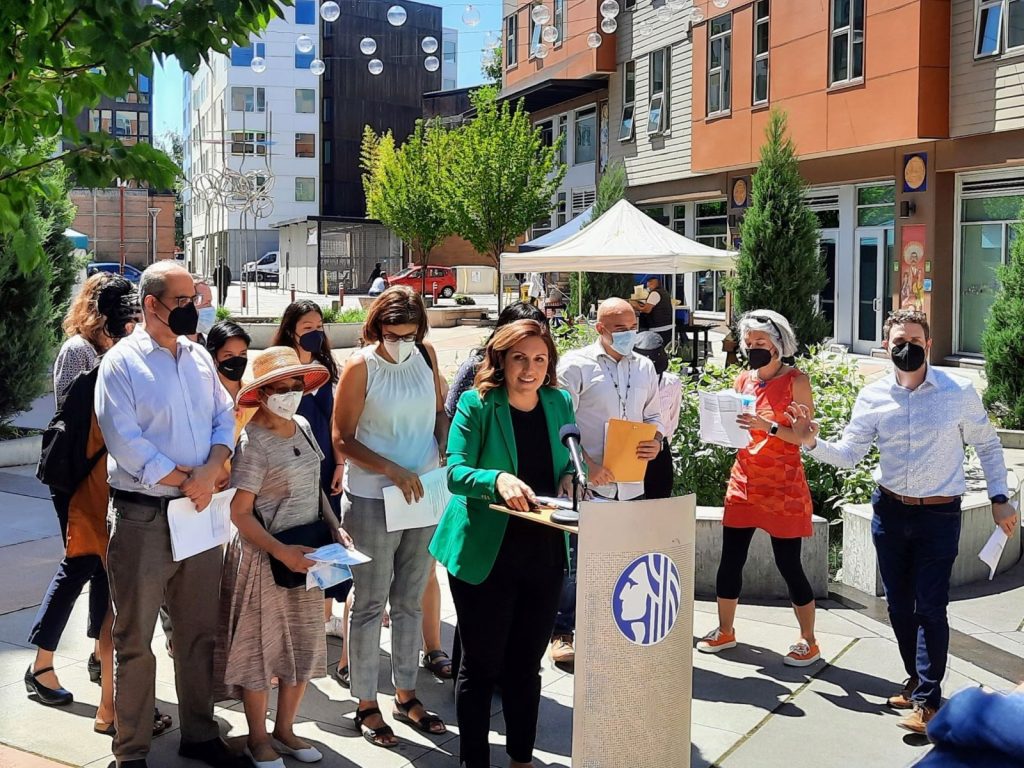
Mosqueda has the endorsement of The Urbanist Elections Committee and will face off with Burien Mayor Sofia Aragon, who has 37.6% of the vote currently. Barón had the endorsement of both The Stranger and The Seattle Times in a rare feat. Urbanist-endorsed Becka Johnson Poppe was eliminated after Assistant Attorney General Sarah Reyneveld edged her out to face Barón in the general.
Mosqueda will make the jump from the Seattle City Council, where she made a name for herself passing the JumpStart Seattle payroll tax funding housing and Green New Deal investments. Barón was the long-time executive director of the Northwest Immigrant Rights Project, a nonprofit with a mission to promote “justice by defending and advancing the rights of immigrants through direct legal services, systemic advocacy, and community education.”
Both Mosqueda and Barón have indicated a desire to boost transit service, housing, and public health from their perch at the County. Transit is at a pivotal time with King County Metro struggling with a labor shortage and service reliability issues — plus a stalled out Metro Connects capital program that had aimed to expand the RapidRide network of enhanced bus service. It will take leadership from the county council to right the ship.
Read our prior interview with Mosqueda for more.
No sign of levy fatigue
The county’s veterans, seniors, and human service levy renewal passed by a resounding margin. As of Friday, the levy had 71.6% support. Despite worries that King County could be on the verge of tax fatigue, scant evidence of that exists in electoral results. Good to know as the County contemplates a transit measure to boost Metro service. Seattle is also aiming to pass a $970 million housing levy renewal in November.
Doug Trumm is publisher of The Urbanist. An Urbanist writer since 2015, he dreams of pedestrian streets, bus lanes, and a mass-timber building spree to end our housing crisis. He graduated from the Evans School of Public Policy and Governance at the University of Washington in 2019. He lives in Seattle's Fremont neighborhood and loves to explore the city by foot and by bike.


